David Selby and Fumiyo Kagawa completed a April to September 2014 Disaster Education Project for the Caribbean Disaster Emergency Management Agency (CDEMA) involving sixteen English-speaking Caribbean countries.
Their first task was to conduct a baseline study on the current level of integration of comprehensive disaster management into the education sector at primary and secondary school level. This involved critical interrogation of Caribbean regional and country-specific syllabi, learning materials and programs, scrutiny of noteworthy materials from around the world and assessment of their applicability to the Caribbean, and individual and focus group interviews with key stakeholders, including students, to elicit opinions and perspectives on current disaster-related learning and teaching in the Caribbean. Particular attention had to be paid to the current CDEMA Disaster Education Kit for Caribbean schools and detailed recommendations made for the upgrading and updating of the Kit. The baseline study was completed by the end of June 2014.
CDEMA accepted the report in early July 2014, its recommendations then forming the basis for upgrading the Disaster Education Kit. The researching and writing of the Kit, retitled the CDEMA Disaster Risk Reduction Education Kit took place in July and August 2014. The core part of the Kit comprises some 49 learning activities including disaster awareness raising activities, activities on climatological, geo-seismic and human-induced hazards, activities on climate change, and activities for resilience building. Additionally, there is a sizeable section of activities for use in post-disaster contexts and directed towards rebuilding psycho-social wellbeing.
The activity sections are preceded by guidance to teachers on using the Kit, a sections laying out key ideas and concepts in disaster risk reduction, an explanation of a five-dimensional model of disaster risk reduction education, advice on how to integrate disaster risk reduction across the curriculum, an explanation of why interactive learning is so central to disaster risk reduction learning, and practical guidance to teachers on facilitating the activities. Following the activities section, easy-to-use ideas for student assessment are laid out. The Kit concludes with lists of practical, electronically available learning and information resources teacher can draw upon and copies of PowerPoint slides for use in classroom.
Fumiyo and David visited the Caribbean from 5-14 September to observe the activities being piloted in primary and secondary schools in St. Kitts and Nevis and on the Turks and Caicos Islands. Pilots took place on St. Kitts and Nevis on 8 and 9 September, some eight lessons being observed in two high schools and two primary schools. Pilots on Turks and Caicos took place on 11 and 12 September, some ten lessons being seen in two primary schools and one secondary school.
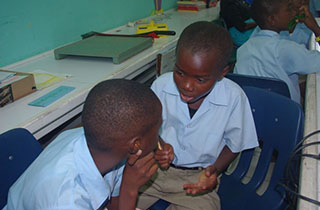
Beach-Allen Primary School, St.Kitts & Nevis
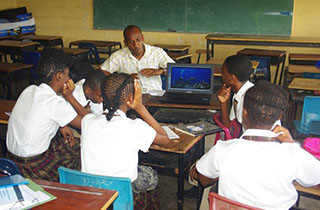
Washington Archibald High School, St Kitts & Nevis
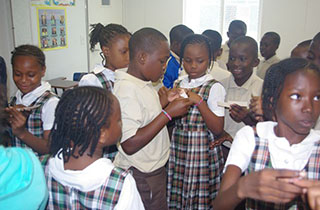
Eliza Simons Primary School, Turks & Caicos
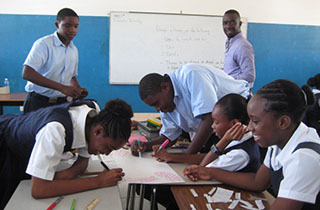
Helena J Robinson High School, Turks & Caicos
Following piloting lessons, discussions were held with the teachers and a meeting held with the school principal (or deputy). Responses to the activities from both teachers and students were very positive, the teachers showing admirable adeptness and flexibility in adapting activities to context and age group. The positive response of the teachers was subsequently very much echoed by a pan-Caribbean group of teachers and educators who had agreed to give feedback on the draft Kit.
On returning to the United Kingdom, the SF team amended the Kit in the light of feedback, submitting the final version to CDEMA on 24 September 2014. The Kit has since been presented at a CDEMA workshop attended by Caribbean chief education officers, ministry of education officials with responsibility for safety and/or curriculum and national disaster office training and education officers and was very well received not least for the flexibility of the approach adopted and the interactive learning approaches adopted.
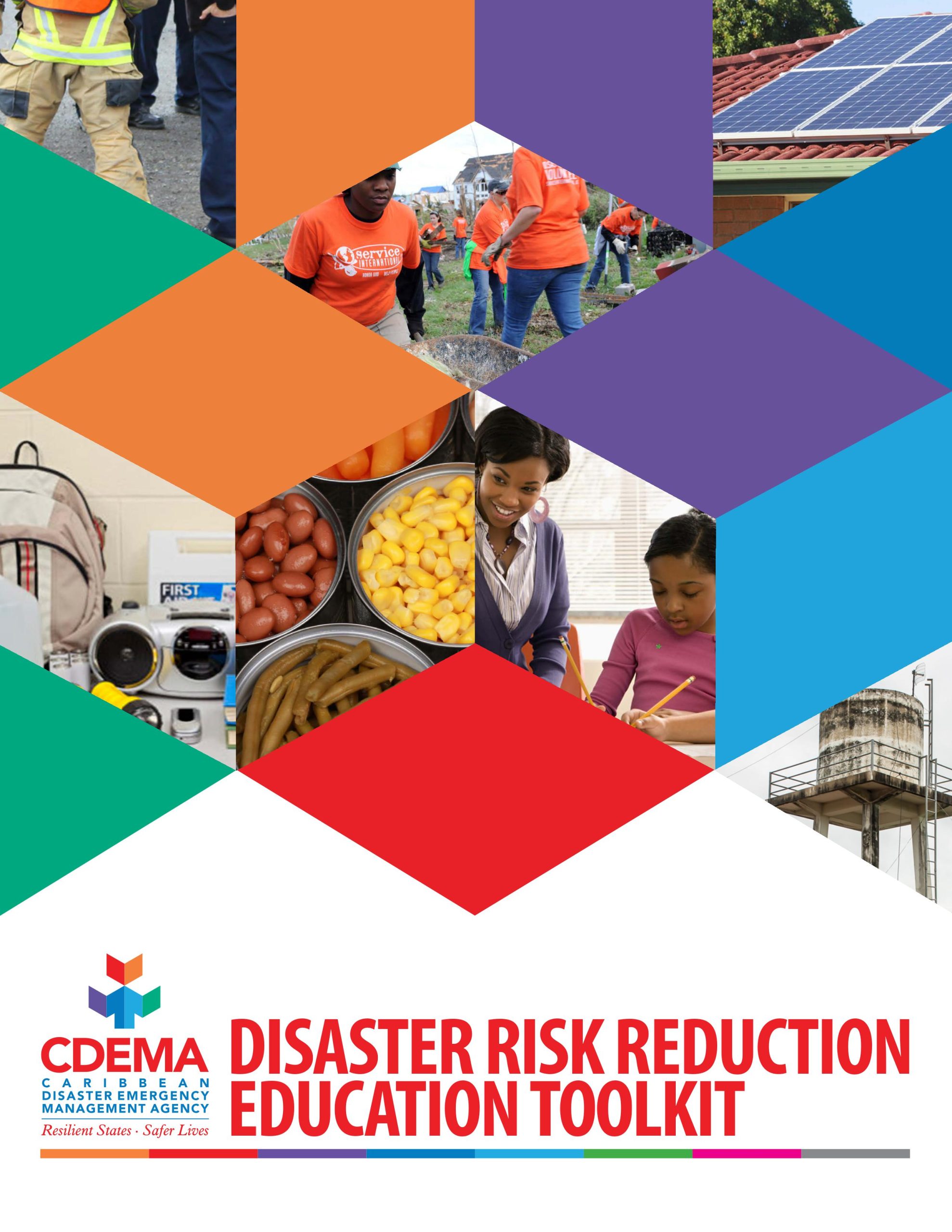 The published outcome of this consultancy is Disaster Risk Reduction Education Toolkit (CDEMA, 2014).
The published outcome of this consultancy is Disaster Risk Reduction Education Toolkit (CDEMA, 2014).

